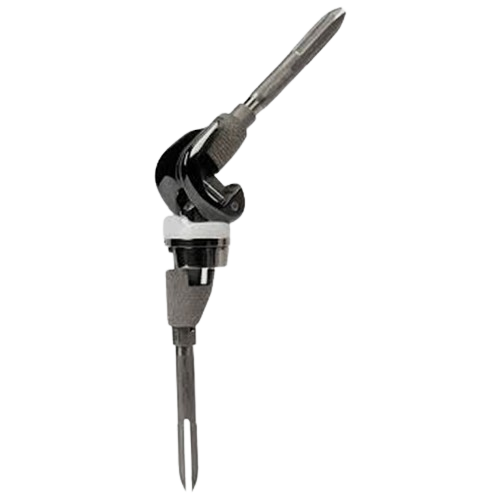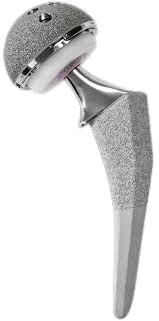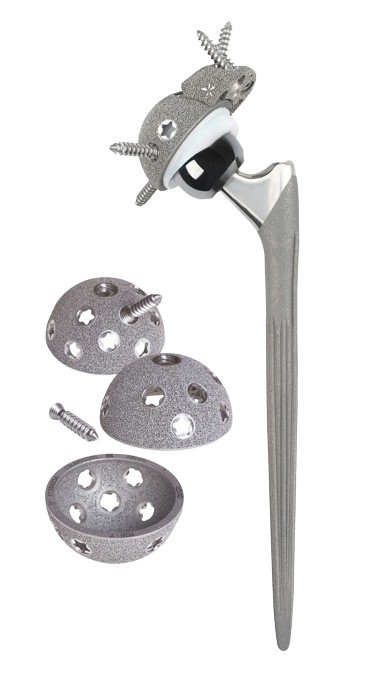Services
Total Knee Replacement
Millions of people suffer from degenerative knee arthritis resulting in knee pain and stiffness. Total Knee Replacement, also known as Total Knee Arthroplasty, is a surgical procedure performed to replace the worn-out or damaged surfaces of the knee joint with artificial parts, or prostheses. This surgery is typically recommended for patients with severe knee pain or functional limitations due to arthritis (osteoarthritis, rheumatoid arthritis, etc.), trauma, or other rare destructive diseases of the joint. The goal of total knee replacement surgery is to relieve pain, restore function, and improve quality of life.




Anterior Total Hip Replacement
The hip is a primary weight bearing joint in the body that plays an important role in a person’s daily function. It is often referred to as a ball and socket joint. Over time, one or both hips may develop a degenerative condition called osteoarthritis, which can result in pain and stiffness in the hips. With modern technology, patient’s can reduce their pain and improve their function with a minimally invasive total hip replacement.
Partial Knee Replacement
The knee joint can be viewed as three main compartments: the medial compartment, lateral compartment and patellofemoral compartment. If your pain and arthritis is localized to just one of these compartments, then a partial knee replacement may be an option for you. A partial knee replacement (unicompartmental knee arthroplasty) has certain advantages when compared to a total knee arthroplasty. The ACL and PCL are retained along with the remaining non-arthritic compartments, which allows the knee to feel more like your native knee. Patients often have less pain and a faster recovery from a partial knee replacement. If you have arthritis in more than one compartment or more globalized pain, a partial knee replacement may not be a good option for you and can result in early failure and subsequent conversion to a total knee replacement.


Revision Total Hip and Knee Replacement
While most patients who undergo hip or knee replacement surgery have good outcomes, there are occasions when patients may experience pain, stiffness, loosening, infection or other symptoms that may warrant further surgery. A revision hip or knee replacement requires an extensive workup prior to proceeding with surgery. The surgery often requires removal of all components and implantation of revision components. Dr Scott has extensive experience with revision hip and knee surgery to help care for patients who require these complex surgeries. If you would like to get a second opinion with Dr Scott, please bring all prior imaging on a disc and previous operative notes with you to your visit.


